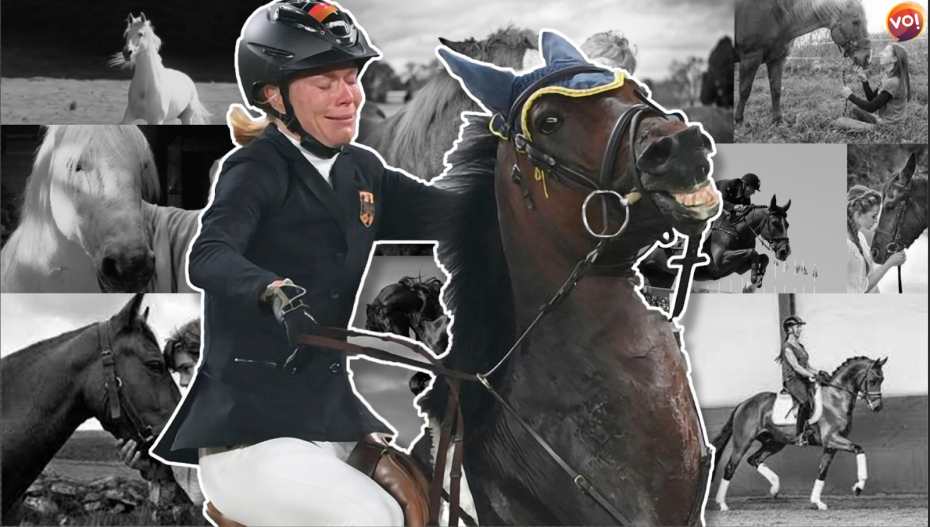German Modern Pentathlete, Annika Schleu dreamt of bringing home the gold medal, but her horse, the handsome Saint Boy had other ideas. As Schleu mounted him, he refused to jump over the obstacles and left his rider in tears. In such a situation, the right and humane thing to do would be to dismount, and walk away with the misbehaving horse.
Instead, Schleu’s coach Kim Raisner decided to punch the horse. This incident has sparked widespread outrage, particularly from the equestrian and animal welfare communities. Legendary horse rider and seven-time Olympic gold medallist Isabell Werth criticised the use of horses in the modern pentathlon. The German dressage rider said, “It has nothing to do with equestrian sport as we practice it and how we know it.” She added, “The whole system should change”.
The condition of Horses in the Tokyo Olympics have been concerning, to say the least. On August 1, Jet Set, a 14-year-old Swiss cross-country horse, was put down after suffering a ligament tear on the cross-country running course. The history of horses facing cruelty at the Olympics has long and deep-seated roots. In the 2012 Olympics, videos of horses being trained by the infamous ‘Rollkur’ method, where their necks are curved around so tightly that it causes them difficulty in breathing, leading their tongues to turn blue and loll out of their mouths. At the time, dressage trainer and author Lady Sylvia Loch said, “It is a shocking symptom of where the sport is going, it’s the tip of the iceberg. What is going on behind closed doors in the training of these horses is very wrong.”
Taking a closer look at recent events, and observing Annika Schleu’s race, it can be seen that Saint Boy, her randomly assigned horse, was extremely afraid of his rider and her coach. He was also clearly spooked by the Olympic arena, visibly nervous and unwilling to trot or run. Despite this, he still made one jump, after which he refused to compete further.
To understand why the use of horses in the Olympics, specifically in the Modern Pentathlon, we must take a deeper look at how sport horses are trained. In 2018, Equus Magazine, a reputed publication for horse trainers and riders, published an article authored by trainer Benjamin Flakoll, detailing what methods help a horse learn quickly and motivate it to perform.
Flakoll writes, “When your horse misbehaves because he is afraid, the worst thing you can do is punish him. That will only make him afraid because he will associate the thing he fears with the punishment.” Also going on to detail how horses need time to get accustomed to a new rider and build trust.
The rules of the Olympic Modern Pentathlon ignore this fundamental base of horse behaviour, instead randomly allotting horses to athletes and giving them a maximum of 20 minutes to get accustomed to each other. This leads to trauma for the animals and avoidable problems for the athletes. In the era where animals are being granted legal personhood in countries around the world, it stands to reason that the Olympics should also take the needs and quirks of sport animals into consideration.













